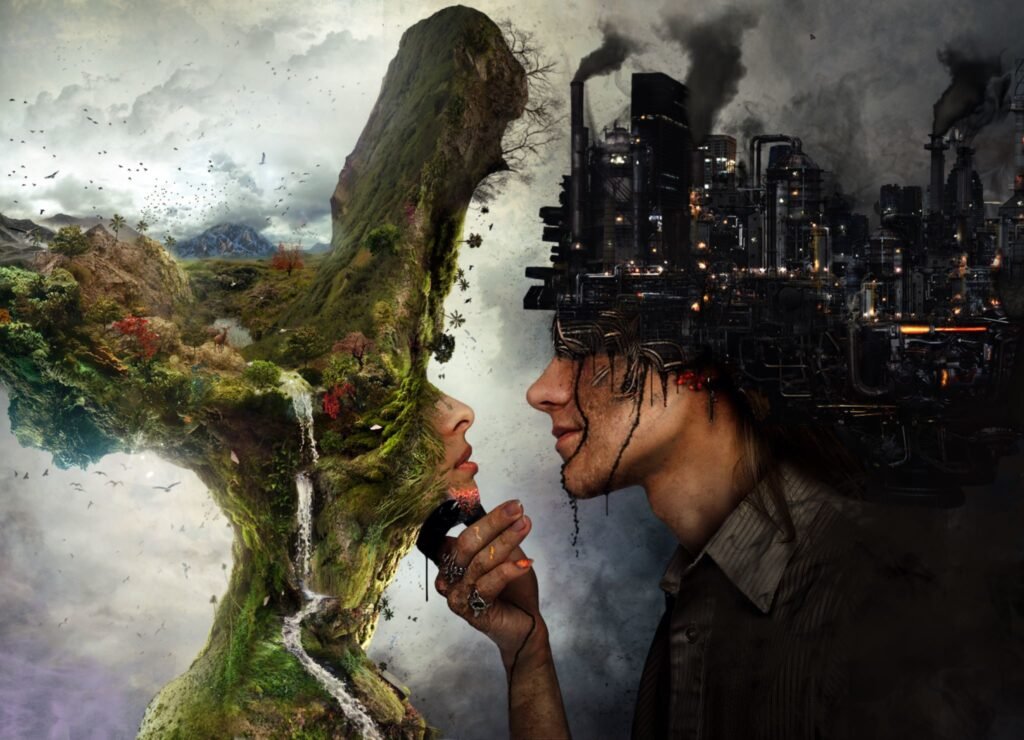Technological progress seems to be the ultimate measure of human achievement in our rapidly advancing world. We live in an age where artificial intelligence, space exploration, and medical breakthroughs dominate the headlines. Yet, as technology continues to ripen, humanity faces ever-deepening moral and ethical challenges. While knowledge—the acquisition of facts and information—has skyrocketed, wisdom, the ability to apply that knowledge judiciously, seems to be in short supply.
Knowledge: The Building Blocks of Progress
Knowledge is the foundation of human progress. It has allowed us to map the genome, land on the moon, and connect the world through the Internet. It gives us the tools to understand our universe, develop new technologies, and improve our quality of life. But knowledge is not inherently good or bad—it is simply a tool that can be used for various purposes.
For example, nuclear energy is a tremendous scientific achievement. It can power entire cities, reducing reliance on fossil fuels. But that same knowledge has also led to the creation of nuclear weapons capable of wiping out humanity in a matter of minutes. This is where the distinction between knowledge and wisdom becomes critical.
Wisdom: The Ethical Application of Knowledge
Wisdom transcends mere knowledge; it involves the thoughtful and ethical application of what we know. It requires a nuanced understanding of the human experience, empathy for others, and the ability to foresee the potential consequences of our actions. Wisdom involves making decisions that not only benefit oneself but also consider the broader impact on humanity and the planet.
In many respects, cultivating wisdom is more challenging than simply accumulating knowledge. While knowledge can be gained through education and experience, wisdom often comes from reflection, emotional maturity, and a willingness to learn from mistakes. It’s the ability to discern right from wrong and to navigate complex moral landscapes that ultimately define wisdom.
The Dangers of Knowledge Without Wisdom
As technology accelerates, the disparity between knowledge and wisdom becomes increasingly pronounced. Society faces numerous challenges stemming from this imbalance, especially in areas such as climate change, social justice, and digital ethics. For instance, the rise of social media has transformed communication, creating both opportunities for connection and avenues for misinformation, polarization, and even social isolation.
The advent of artificial intelligence offers a stark illustration of this dynamic. While AI has the prospect to transform industries and enhance quality of life, it also raises pressing ethical questions around privacy, bias, and unemployment. The tools that could enhance our lives also have the capacity to exacerbate existing inequalities and create new forms of harm if not managed wisely.
The Call for Holistic Education
Education systems must undergo a transformation to bridge the gap between knowledge and wisdom. It is essential to move beyond rote memorization and standardized testing, which primarily focus on knowledge acquisition, and instead foster critical thinking, ethical reasoning, and emotional intelligence. By encouraging students to reflect on their values and the implications of their choices, we can better prepare them to go through the sophistication of the modern world.
Interdisciplinary approaches that merge science and the humanities can also be instrumental in nurturing wisdom. For instance, courses that integrate ethics with technological studies can challenge students to consider the societal implications of their work. Understanding the ethical dimensions of advancements in fields like biotechnology or artificial intelligence will empower future generations to make informed decisions that prioritize human dignity and welfare.
The Need for Balance
As we stand on the precipice of technological advancements that could reshape our lives, it is vital to recognize that knowledge alone will not save humanity. We must cultivate wisdom alongside our pursuit of innovation. This means actively engaging with the ethical dimensions of our choices, promoting empathy, and ensuring that technological progress aligns with the values of justice and compassion.
Conclusion
In ‘The Last Waltz,’ Muzaffar Hussain explores the light interplay between knowledge and wisdom, highlighting the importance of using our knowledge ethically in the face of technological progress. His narrative challenges us to think critically about our choices and their impact on society. As we go through an increasingly complex world, let us strive to integrate wisdom into our pursuit of knowledge, ensuring that our advancements contribute to a future that respects both humanity and the planet.



